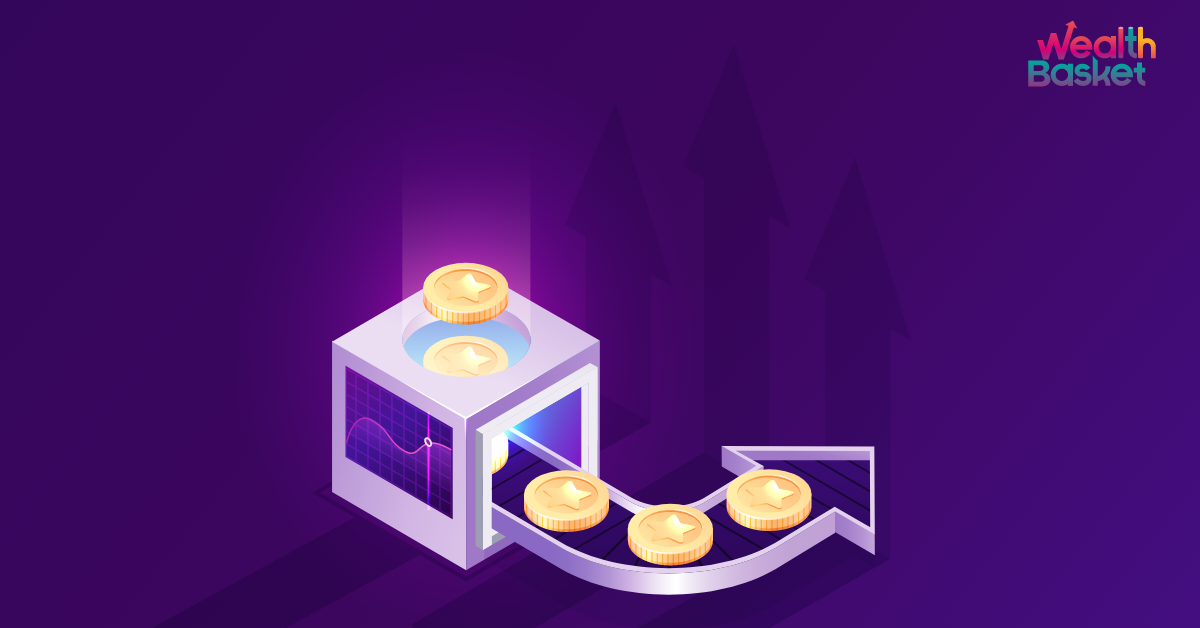Companies, during their journey, take many corporate actions, two of which are dividend payouts and share buybacks.
Dividends mean the part of profit companies distribute to existing shareholders as a reward. Share buyback is a corporate action in which the company buys back equity shares, usually at a higher price than the current market price, from those existing shareholders who voluntarily want to participate.
This article discusses examples, reasons and differences between dividends and share buybacks.
Examples Of Dividend And Buyback
Here is an example that may help you understand how dividends and buybacks work.
Suppose a company has 5,00,000 shares outstanding, and shares are traded at ₹40 per share, resulting in a current market capitalisation of ₹2,00,00,000. The company had revenue of ₹1,00,00,000 and a net income of ₹10,00,000 in the previous financial year. It means the earnings per share is ₹2 per share.
In the case of dividends
Suppose the company wants to distribute all its profit of ₹10,00,000 as dividends. As there are 5,00,000 outstanding shares, the cash dividend per share would be
₹10,00,000 / 5,00,000 = ₹2 per share
Therefore, if you have 1,000 shares of that company, you will get ₹2,000 (1,000 * ₹2) as dividends.
In the case of share buybacks
Suppose the company wants to use all its profit of ₹10,00,000 to buy back shares. Though the company may perform share buyback over several months at different prices, for the sake of understanding, let’s assume that the company buys back shares at ₹50 per share, resulting in 20,000 repurchased shares.
Here, you get the chance to sell some or all of your shares at ₹50 per share instead of ₹40. After the buyback, the company will have 4,80,000 shares outstanding. Therefore, its EPS would be ₹2.08 per share, which was ₹2 per share.
Why Do Companies Pay Dividends?
To reward shareholders
Distributing dividends means sharing a part of the profit with owners. By paying dividends, companies reward shareholders for providing them with funds, which may motivate them to keep holding shares or even buy more.
To attract new shareholders
Companies with a regular dividend policy and stability of dividends, irrespective of market conditions, may attract new investors wishing for regular income from stock investments.
Why Do Companies Perform Share Buyback?
To distribute excess cash
There are chances that companies have more cash than required and no good investment opportunities are available. In such an instance, the company may choose to reward its shareholders by buying back shares and providing them with cash so they can decide where to invest that amount.
To consolidate hold over the company
Voting rights may also broadly spread when shares are spread among many investors. In such an instance, it becomes difficult to arrive at a decision unanimously. One of the benefits of the share buyback is that it may help solve this issue by reducing the number of voters.
The stock is undervalued
The company may go for buyback when its stock seems undervalued. There can be many reasons for the undervaluation of stock, such as small size, inadequate display of the company’s workings, overall bearish market phase, etc. In such an instance, the company may buy back some of its shares and reissue them at a better price.
Difference Between Dividends And Share Buybacks
| Point of difference | Dividends | Share buybacks |
| Beneficial for | All existing shareholders of the company on the record date get the dividends. | Shareholders voluntarily opting to participate in share buybacks may benefit. |
| Impact on shares in the market | The total number of shares in the market remains the same after dividend distribution. | The total number of shares in the market would decrease after the company buys back the shares. |
| Frequency | Companies may regularly pay dividends. | Companies may not frequently perform buybacks. |
| Types | Dividends can be of three types: interim, special and final dividends | There are no types of buyback. Rather there are some methods of doing so. |
| Tax | Dividends are taxed at the profit appropriation and the shareholder’s capital gain tax. | Tax on buyback of shares is payable by the declaring company. Capital gain of shareholders is exempted. |
Final Thoughts
Dividend payouts and share buybacks help investors increase overall shareholder returns. When both include paying cash to shareholders, they differ in applicability, impact on the number of outstanding shares, frequency and tax effects. Both have their own importance and loopholes.
Do you want to invest in markets and create wealth? We, at WealthDesk, help you to do so by enabling you to invest in WealthBaskets, which are the research-backed combination of stocks and ETFs based on idea, theme or strategy and are built by SEBI-registered professionals.
FAQs
Dividends and share buybacks both aim to reward shareholders. Investors looking for regular income may find dividends better, and those looking for quick gains may find share buyback a better reward.
Companies that aim to consolidate ownership, change the capital structure, increase the stock price, etc., in addition to rewarding shareholders, may choose to buy back shares over distributing dividends.
Share buybacks may benefit shareholders as they get a chance to sell some or all shares at a higher price. They may also benefit if the share price increases post the buyback of shares.
Buybacks are beneficial in multiple ways, financially, for investors and companies as compared to dividends. Thus dividends declared might be in lower numbers due to buybacks.















